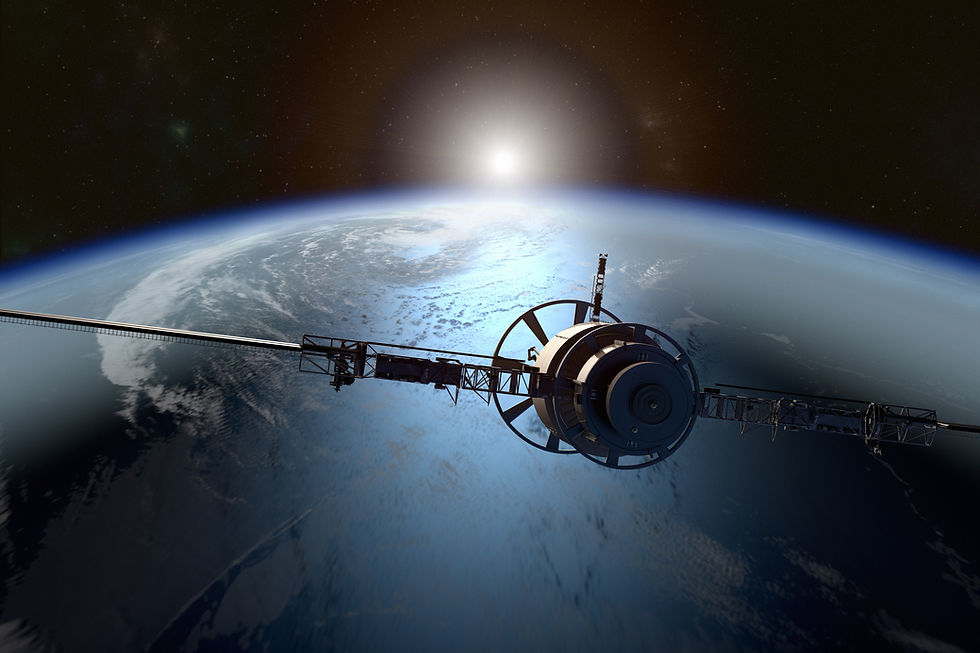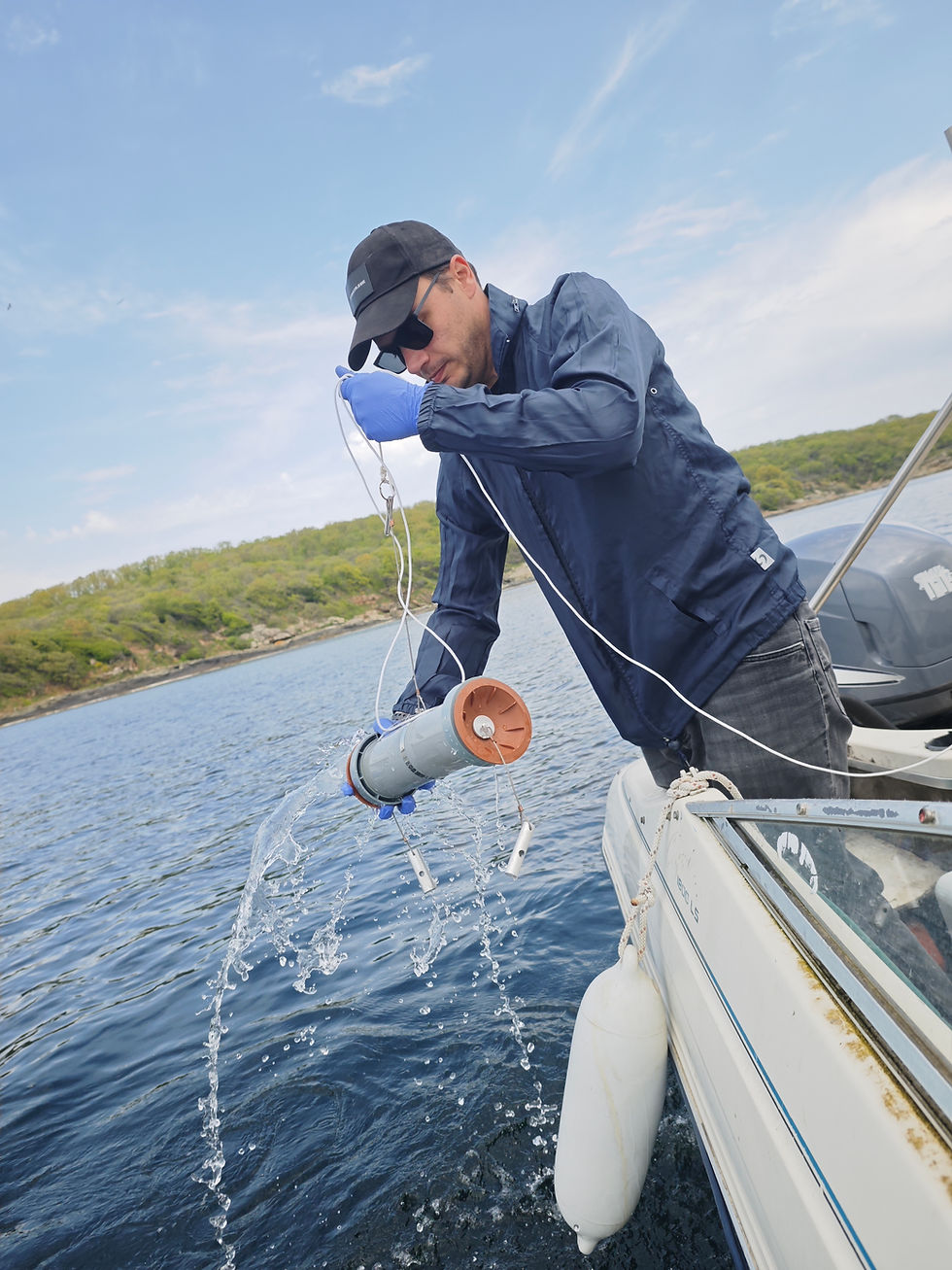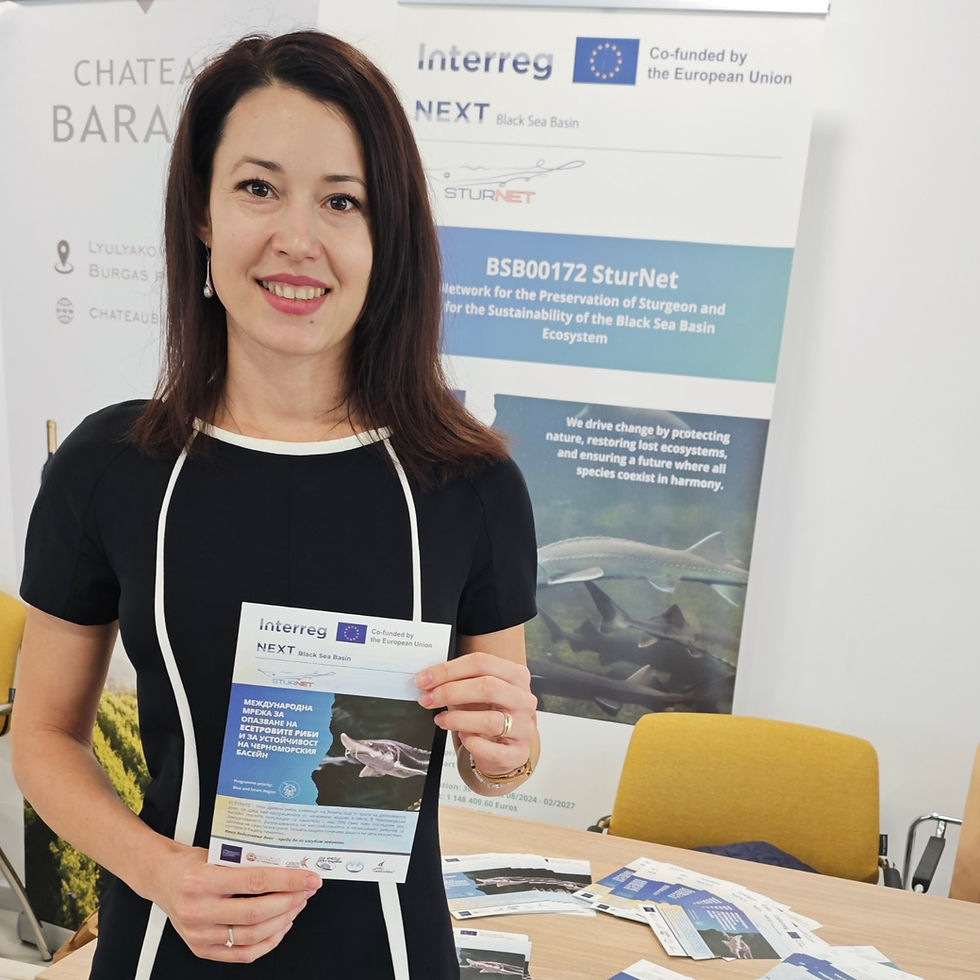2025: The Climate alarm is louder than ever- Monitoring data matters now more than ever
- sulevaivelina
- 6 days ago
- 4 min read
When climate records break, we need better ways to see what’s happening.

This week brings a powerful contrast: alarming new climate data and encouraging new monitoring capacity — both in space and in the Black Sea.
The Copernicus Climate Change Service confirms that 2025 is on track to be among the three warmest years ever recorded, while Europe’s Earth-observation system just grew stronger with the successful launch of Sentinel-1D. And closer to home, the Euro-Argo programme deployed new high-tech oceanographic floats in the Black Sea, giving scientists unprecedented real-time insight into one of Europe’s most delicate marine basins.
Together, these developments paint a clear picture:
Climate change is accelerating, and Europe is expanding the tools needed to understand and respond to it.
2025 Is Almost Certain to Become One of the Warmest Years in Human History
According to the latest Copernicus data reported by Euronews:
October 2025 was the third warmest on record globally, with temperatures 0.70°C above the 1991–2020 average.
Global temperatures over 2023–2025 are now highly likely to exceed 1.5°C above pre-industrial levels, at least temporarily.
Sea-surface temperatures remain exceptionally high, feeding extreme weather patterns.
Arctic sea ice was 12% below average; Antarctic, 6% below average.
These numbers are not abstract. They are visible in shifting seasons, extreme rainfall events, prolonged droughts, and unusual marine patterns — including the warming and deoxygenation of the Black Sea.
Europe Expands Its Climate “Eyes” — Sentinel-1D Successfully Launched

Just this week the EU launched Sentinel-1D on an Ariane 6 rocket, reinforcing the radar-imaging backbone of the Copernicus Earth Observation Programme.
✅ What Sentinel-1D brings:
All-weather, day-night radar imaging
Critical support for flood monitoring, landslides, land-use change and coastal risks
Improved data for soil moisture, snow, ice, forest condition and cropland monitoring
Increased reliability of the European Ground Motion Service (EGMS)
Upgraded autonomy thanks to a Galileo-enabled navigation receiver
This comes at a crucial time. As the climate warms faster, the demand for high-resolution, real-time data grows. Sentinel-1D strengthens Europe’s ability to detect, predict and respond to environmental changes — from melting ice to infrastructure risks.
New Euro-Argo Floats Bring Real-Time Data From the Black Sea

While space-borne monitoring expands, Europe is also enhancing its ocean-based observation network.
Euro-Argo ERIC has deployed new oceanographic profiling floats in the Black Sea equipped with advanced sensors that measure:
Temperature
Salinity
Dissolved oxygen
Key biochemical parameters
This is major news for our region.
The Black Sea is one of the most vulnerable seas in Europe, heavily affected by warming, pollution and chronic oxygen depletion.
The new floats provide real-time, open-access data available to citizens, NGOs and scientists.
This transparency strengthens marine conservation, early warning systems and informed decision-making.
Continuous oxygen and temperature measurements help track how climate change affects marine ecosystems, fisheries and biodiversity.
Connecting the Dots
The three developments — global climate data, Sentinel-1D, and Euro-Argo’s new Black Sea floats — tell a unified story:
🌡️ The planet is warming faster than expected.
2025 will not be an exception — it will be another record-breaking year.
🛰️ Europe is rapidly strengthening its ability to observe these changes from space.
Sentinel-1D ensures continuous radar coverage for land, ice and coastal systems.
🌊 The Black Sea is finally receiving the monitoring attention it needs.
The new Euro-Argo floats provide unprecedented real-time insight into an ecosystem under stress.
📢 Better data = better policy.
You cannot manage what you cannot measure. Europe is investing heavily in the tools needed for adaptation, conservation and risk reduction.
Bulgaria stands at the intersection of all three developments:
Rising temperatures influence agriculture, health and water availability.
Sentinel-1D data can support coastal protection, landslide monitoring, and flood prevention.
Euro-Argo's new floats will give the most detailed look yet into the Black Sea’s changing conditions — crucial for fisheries, biodiversity and marine policy.
For researchers, NGOs, local authorities and citizens, this is a moment of opportunity: more data, more transparency, more power to act.

All these developments directly strengthen the scientific foundation for protecting one of the Black Sea’s most iconic and threatened species: the sturgeons.
Through SturNet, our regional network for sturgeon research and conservation, we continuously collect, analyse and integrate environmental data from the Black Sea to understand:
how warming affects sturgeon migration and spawning
how changes in salinity, oxygen levels and currents influence habitat suitability
how pressures such as pollution and coastal development are evolving
how climate-driven shifts in marine ecosystems may accelerate risks for critically endangered species such as Huso huso, Acipenser stellatus, Acipenser gueldenstaedtii and even the functionally extinct A. nudiventris
Why the new data matters for SturNet
The incoming real-time measurements from Euro-Argo and the enhanced Earth-observation data from Sentinel-1D allow us to:
refine our modelling of sturgeon migration corridors
detect early ecological stress signals in coastal and riverine habitats
understand how warming waters influence juvenile survival
identify and map areas needing urgent conservation and restoration
support more accurate and transparent science-based recommendations to national and EU authorities
In short: better climate and marine data make our sturgeon-protection work stronger, faster and more precise.
If you want to contribute — we welcome you
SturNet is an open scientific and stakeholder network. If you are a:
researcher
conservation organisation
fisherman or local community representative
policymaker
student or young scientist
or simply someone who cares about the Black Sea and its iconic species
…you can contribute to our monitoring efforts, citizen-science activities, data collection, or collaborative research.
📨 Contact us
If you want to collaborate, share data, or join our work on Black Sea sturgeon conservation, you can reach us at: info@biodiversity.foundation



Comments